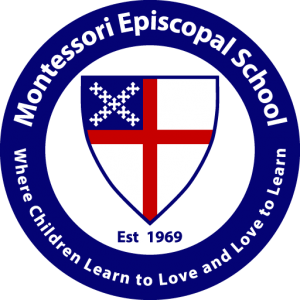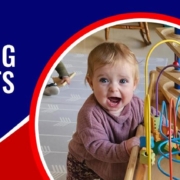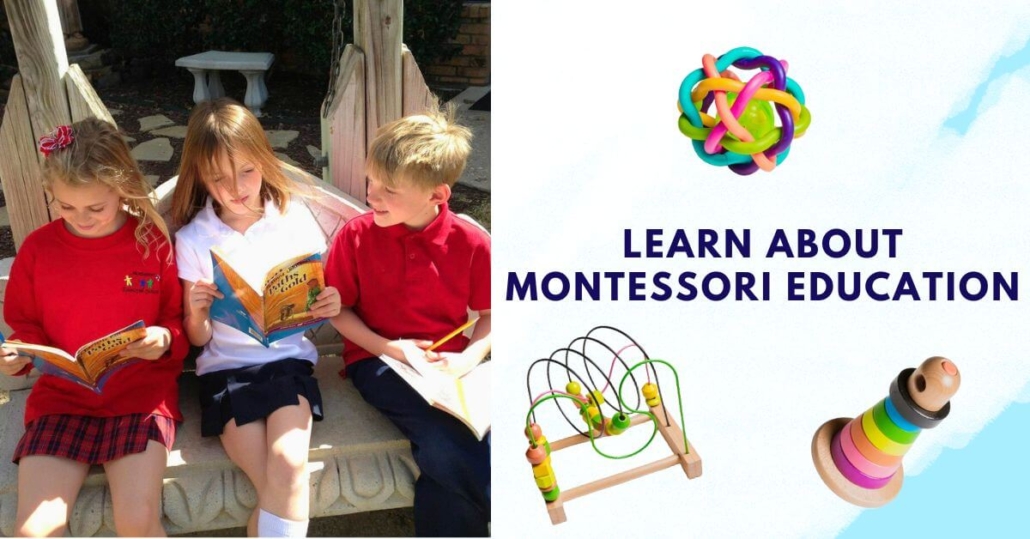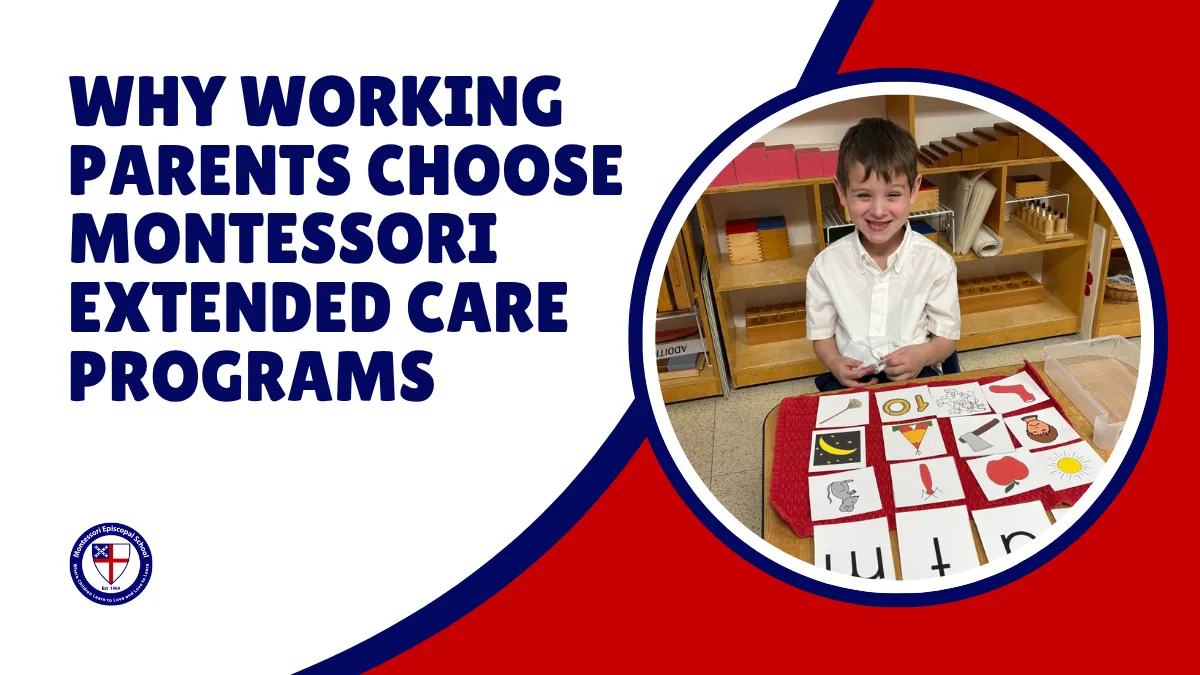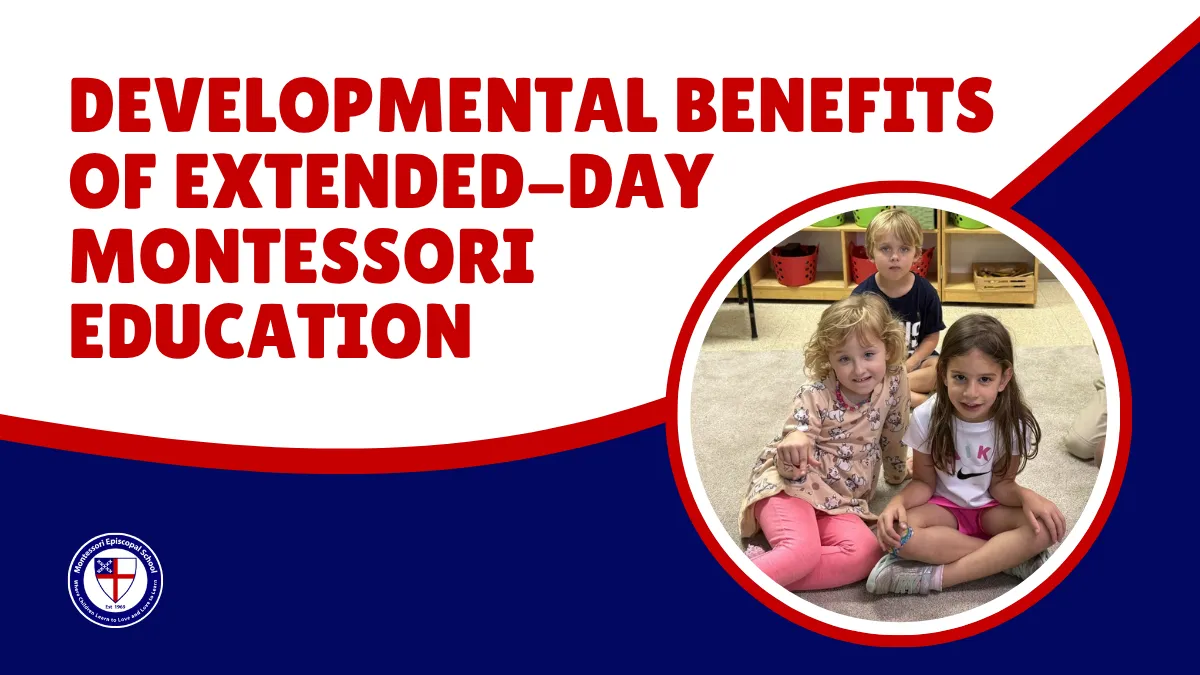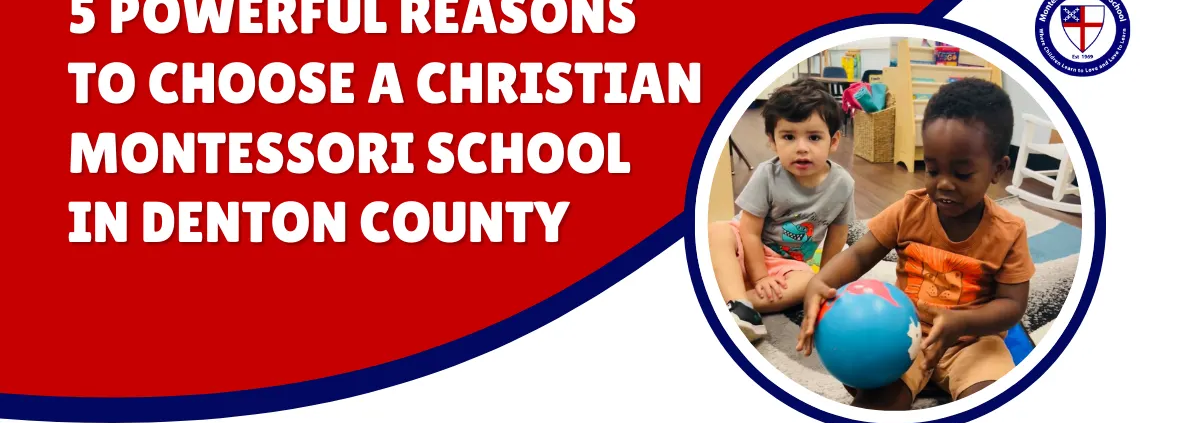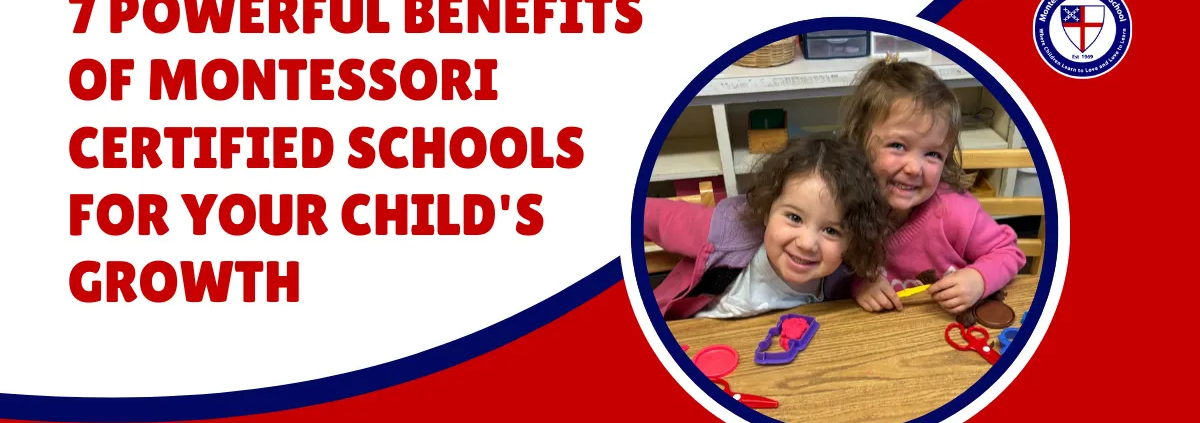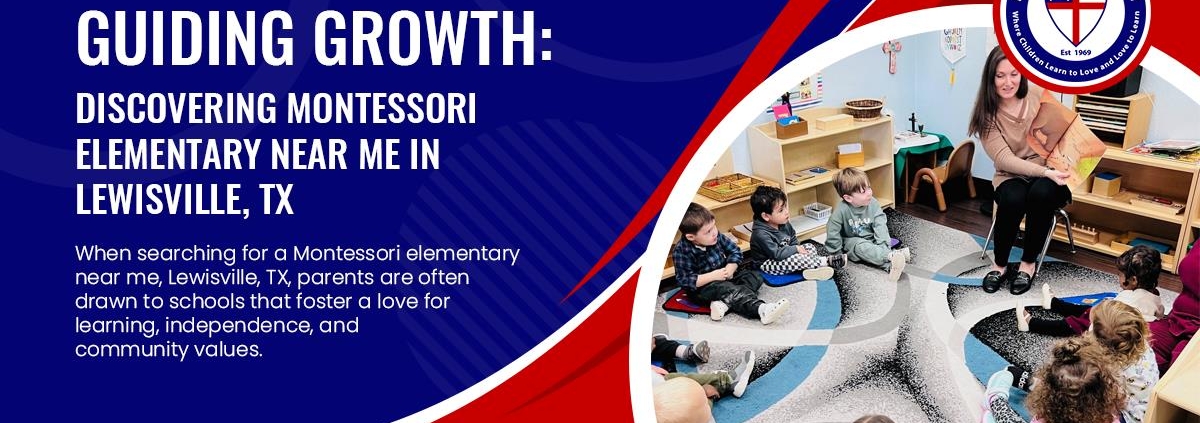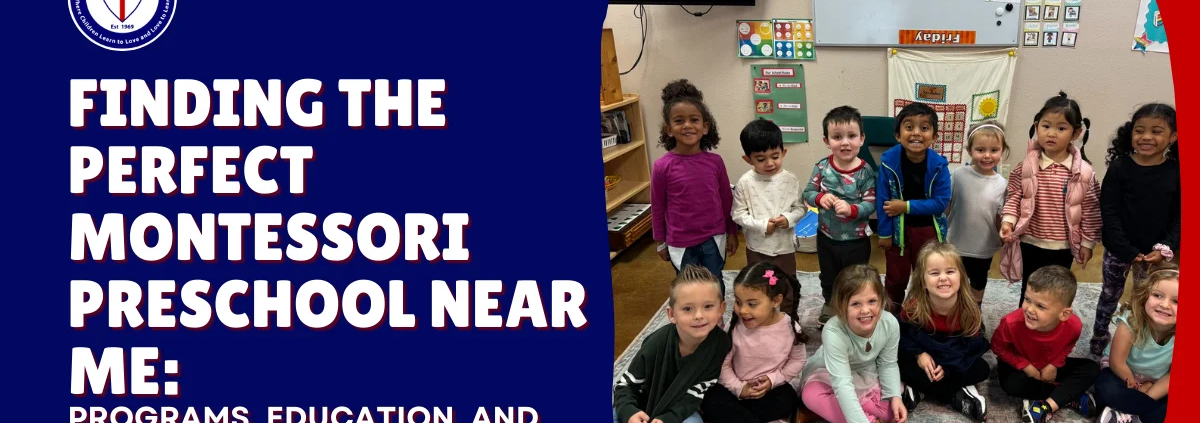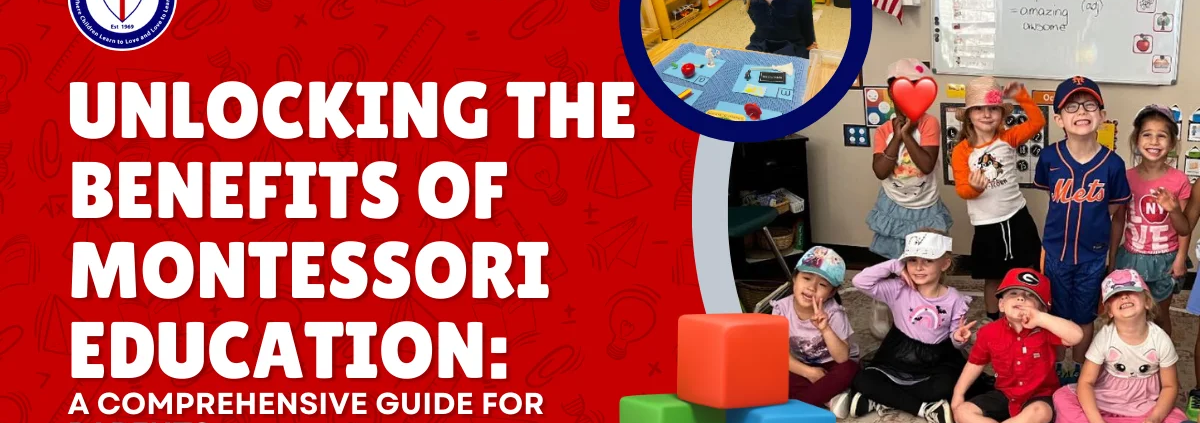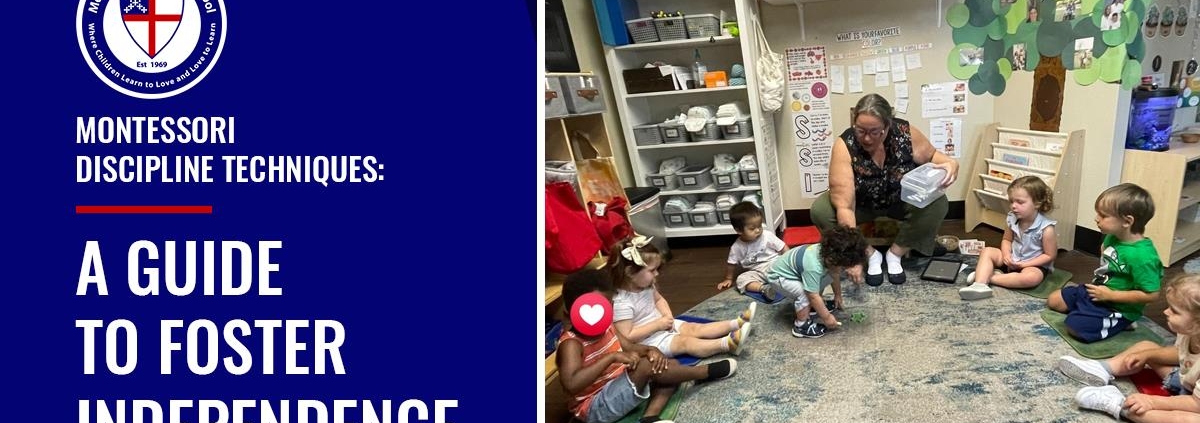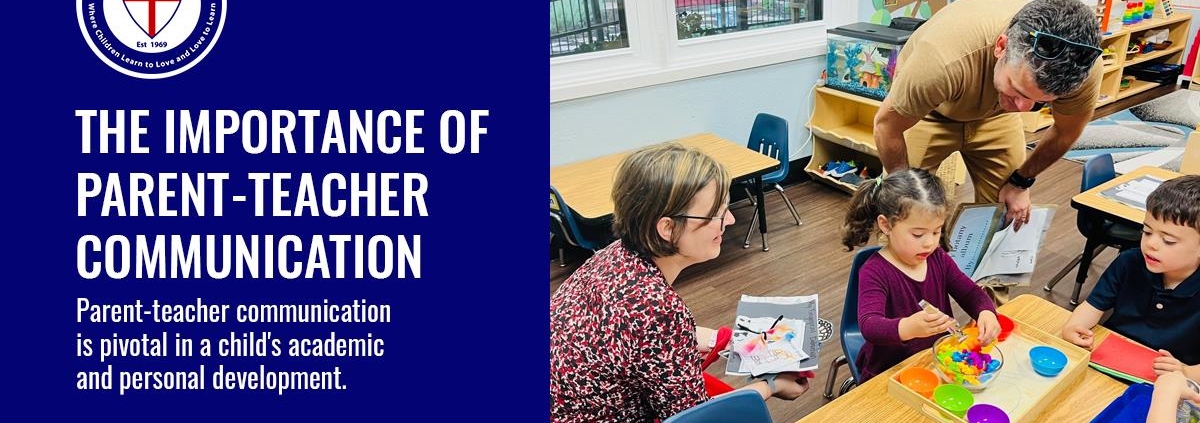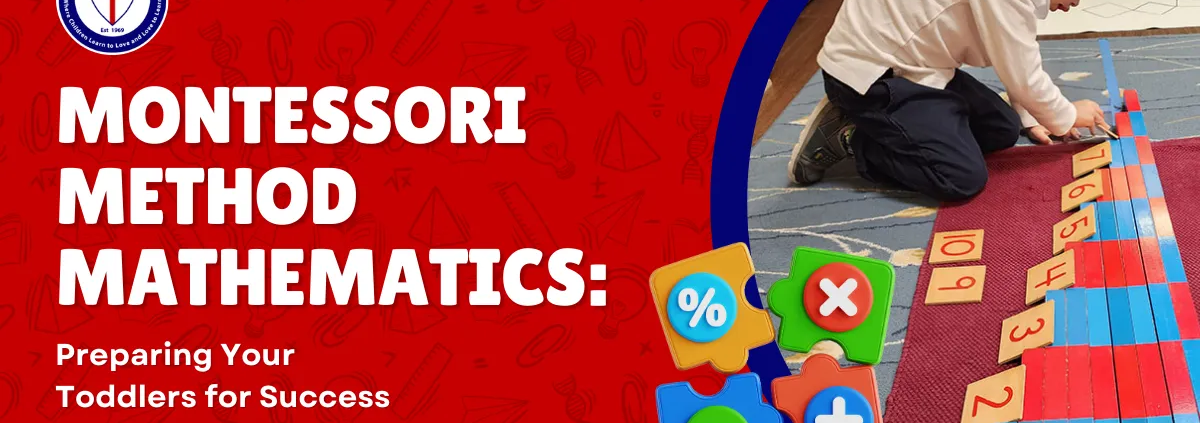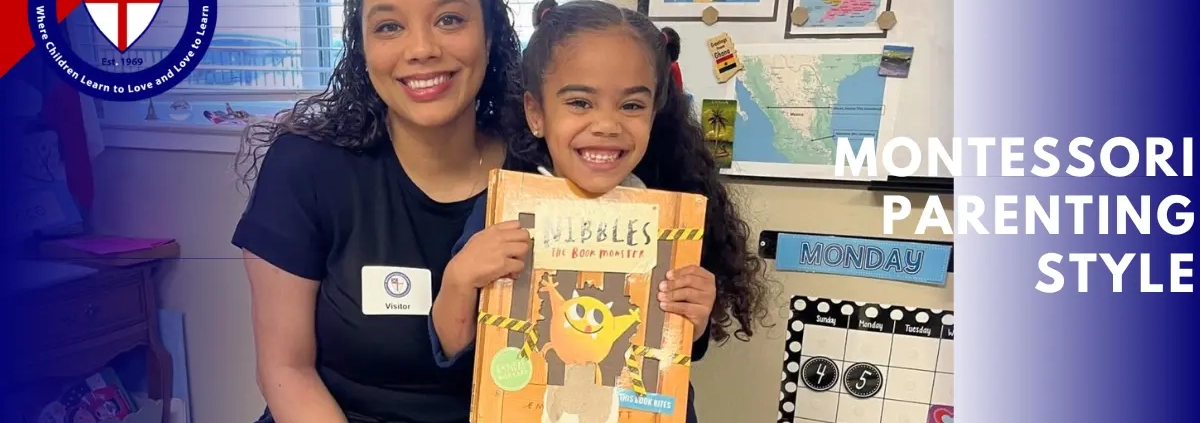Discovering the Benefits of Montessori Flower Mound
Montessori Flower Mound provides a nurturing environment where children develop independence, creativity, and a lifelong love of learning. Rooted in the Montessori philosophy, this approach encourages hands-on exploration, critical thinking, and self-paced growth, allowing each child to flourish academically and personally.
At Montessori Episcopal School, we combine this proven educational model with a strong sense of community, Christian values, and individualized instruction to support well-rounded development. By embracing the Montessori method, families in Flower Mound can offer their children an educational experience that nurtures curiosity and builds a strong foundation for future success.
Finding the Right Fit: Montessori Schools Near Me

When searching for Montessori schools near me, parents want more than just a place for their child to learn—they seek an environment where their child will be nurtured, encouraged, and empowered to grow. Montessori education provides a child-centered approach that fosters independence, creativity, and a love for learning. However, finding the right Montessori school requires careful consideration of factors like curriculum, classroom structure, and community engagement.
A Calm and Supportive Learning Environment
One of the key reasons parents seek Montessori schools near me is the emphasis on a peaceful and structured learning space. Montessori classrooms are thoughtfully developed to create an environment that fosters focus, creativity, and emotional well-being.
- Low Student-to-Teacher Ratios: With fewer students per teacher, each child gets unique attention and guidance tailored to their unique learning needs.
- Peaceful Atmosphere: Montessori classrooms are intentionally quiet and orderly, allowing children to concentrate without distractions.
- Respect for Individual Learning Styles: Students work at their own pace, ensuring they feel supported rather than pressured.
This calm and nurturing environment helps children develop a sense of security, confidence, and a love for learning—key factors in their overall growth and success.
Personalized Learning for Every Child
One of the hallmarks of a Montessori education is its emphasis on individualized learning. Unlike traditional schools that follow a rigid curriculum, Montessori schools tailor lessons to each child’s interests and developmental pace.
- Child-Led Exploration: Students choose activities that spark their curiosity, promoting deeper engagement and understanding.
- Flexible Learning Paths: Instead of one-size-fits-all instruction, Montessori educators assess each child’s strengths and encourage growth in areas where they need support.
- Encouraging Independence: Children develop confidence in their abilities as they take responsibility for their learning.
At Montessori Episcopal School, this personalized approach ensures that every student gets the guidance needed to thrive academically and personally.
Hands-On Approach to Learning
Montessori schools emphasize experiential learning, allowing children to engage with materials meaningfully. This method encourages critical thinking, problem-solving, and creativity.
- Multi-Sensory Materials: Montessori classrooms have hands-on tools to enhance learning, from counting beads to language cards.
- Practical Life Activities: Everyday tasks like pouring, tying, and sorting teach fine motor skills, coordination, and self-sufficiency.
- Collaborative Learning: Children work together on projects, fostering communication and teamwork skills.
This interactive approach helps students build a strong academic foundation while developing essential life skills that extend beyond the classroom.
Making the Right Choice for Your Family
Choosing the right Montessori school is an important decision that impacts your child’s early learning journey. When evaluating options, consider the following:
- Observe a Classroom: Visit the school to see how teachers interact with students and how the Montessori philosophy is applied in daily activities.
- Ask About Accreditation: Ensure the school follows authentic Montessori principles and is recognized by accredited organizations.
- Meet the Educators: Speak with teachers about their experience, training, and approach to student development.
- Understand the Curriculum: Learn how subjects like math, language, and science are integrated into hands-on learning experiences.
By carefully selecting a Montessori school that aligns with your values and educational goals, you can provide your child with an enriching foundation for lifelong success.
Unlocking Potential: Montessori Education Benefits

Every child has a natural curiosity and an innate desire to learn. Montessori education nurtures these qualities by providing an environment that fosters independence, creativity, and confidence. Unlike traditional education, which often follows a rigid structure, Montessori classrooms encourage children to take ownership of their learning, allowing them to grow at their own pace. Parents exploring alternative education options often find that Montessori education benefits extend far beyond academics, shaping children into well-rounded, lifelong learners.
Independence and Confidence: Building Strong Foundations
One of the most valuable benefits of Montessori education is its ability to cultivate independence from an early age. In a Montessori classroom, children are encouraged to make choices, complete tasks independently, and take responsibility for their learning.
- Self-Guided Learning: Instead of following a set curriculum dictated by a teacher, children select activities based on their interests and abilities.
- Practical Life Skills: Everyday tasks such as pouring, buttoning, and sweeping help develop fine motor skills and self-sufficiency.
- Encouraging Responsibility: Students learn to manage their time, organize materials, and take ownership of their progress.
By promoting independence, Montessori education helps children build confidence in their abilities, preparing them for future academic and personal success.
Encouraging Critical Thinking and Problem-Solving
Montessori classrooms are designed to foster curiosity and develop strong problem-solving skills. Instead of memorizing information, children engage in activities that challenge them to think critically and find creative solutions.
- Hands-On Learning: Montessori materials encourage children to explore concepts through real-world applications rather than rote memorization.
- Encouraging Curiosity: Students ask questions, investigate, and discover answers through guided exploration.
- Trial and Error Approach: Children can make and learn from mistakes, reinforcing resilience and adaptability.
This focus on critical thinking prepares Montessori students to approach challenges with confidence and persistence, skills essential for lifelong success.
Multi-Age Classrooms: Learning Through Collaboration
Unlike traditional schools that separate students by strict age groups, Montessori classrooms feature multi-age groupings, allowing children to learn from one another in a collaborative setting.
- Peer Mentorship: Older students act as role models, guiding younger peers and reinforcing their understanding.
- Natural Social Development: Children interact respectfully and cooperatively, learning valuable communication skills.
- Self-Paced Progression: Students are not limited by grade levels and can advance based on their readiness.
This structure fosters a strong sense of community, encouraging teamwork, leadership, and mutual respect.
Lifelong Love of Learning: A Lasting Impact
Montessori education is designed to instill a deep and lasting passion for learning. By allowing children to explore subjects in a way that excites and engages them, they develop a natural enthusiasm for acquiring knowledge.
- Intrinsic Motivation: Instead of being reliant on external rewards, Montessori students develop a love for learning simply for the joy of discovery.
- Whole-Child Development: Montessori education nurtures intellectual growth and emotional, social, and spiritual well-being.
- Smooth Transition to Higher Education: Many Montessori graduates excel in traditional academic settings due to their strong foundation in self-discipline and adaptability.
By embracing a Montessori education, students can become confident, capable, and compassionate people ready to make a meaningful impact on the world.
Why Montessori Stands Out Among Flower Mound Private Schools

When parents explore Flower Mound private schools, they often search for an educational environment that fosters academic excellence and nurtures character development, independence, and a lifelong love of learning. Montessori schools stand apart from traditional private school settings by offering a unique, student-centered approach that prioritizes hands-on learning, individualized instruction, and holistic development.
Holistic Development: Educating the Whole Child
Unlike conventional private schools emphasizing standardized testing and structured curriculum, Montessori education focuses on developing every aspect of a child’s growth—intellectual, emotional, social, and spiritual.
- Academic Excellence: Students engage in self-directed learning, exploring subjects at their own pace to ensure deep understanding and mastery.
- Emotional Intelligence: The Montessori philosophy encourages self-regulation, empathy, and conflict-resolution skills.
- Social Development: Multi-age classrooms allow students to develop leadership skills, cooperation, and respect for others.
Montessori education prepares students for academic success and a fulfilling and well-balanced life by nurturing the whole child.
Faith-Based Learning: Christian Values in Education
While Montessori schools are often known for their child-centered approach, Montessori Episcopal School offers an added layer of faith-based learning, setting it apart from other Flower Mound private schools.
- Character Development: Christian values are woven into daily lessons, emphasizing kindness, integrity, and service to others.
- Community Engagement: Students participate in service projects that teach compassion and social responsibility.
- Spiritual Growth: Children develop a strong moral foundation that guides them in making thoughtful and ethical decisions.
By integrating faith with Montessori principles, Montessori Episcopal School provides a learning experience that fosters both intellectual curiosity and strong moral character.
Academic Excellence Without Pressure
Many private schools focus on rigorous testing and competitive grading systems, which can create unnecessary pressure for young learners. Montessori schools take a different approach by encouraging intrinsic motivation and self-paced learning.
- No Standardized Testing Stress: Montessori students are assessed based on progress and mastery rather than test scores.
- Hands-On Learning: Children engage with interactive materials that make abstract concepts easier to grasp.
- Encouraging Curiosity: Students can explore subjects that interest them, fostering a genuine love for learning.
This method allows children to build confidence in their abilities while maintaining a natural enthusiasm for education.
A Nurturing and Supportive Community
Montessori schools strongly emphasize creating a welcoming and supportive learning environment where students, teachers, and parents work together as partners in education.
- Small Class Sizes: Individualized attention recognizes each child’s needs and strengths.
- Parent Involvement: Families are encouraged to participate in school events, creating a strong sense of community.
- Dedicated Educators: Montessori teachers serve as guides, fostering independence while providing personalized support.
Families seeking an alternative to traditional Flower Mound private schools will find that Montessori provides a balanced and enriching foundation for their child’s future.
Conclusion
Montessori education offers a transformative experience, shaping children into confident, independent, and curious learners. By choosing a Montessori school, families in Flower Mound invest in a philosophy that nurtures the whole child—academically, socially, and emotionally. With a hands-on, child-centered approach, Montessori fosters creativity, critical thinking, and a wish for learning that lasts a lifetime.
Ready to give your child the gift of a Montessori education? Contact Montessori Episcopal School today to schedule a tour and see the difference for yourself! Call us at (972) 895-9050 or visit our contact page to learn more. We can’t wait to welcome your family!
